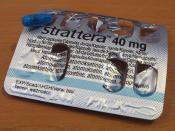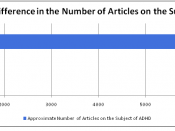Stimulants and Their Effects: Should These Drugs Be Prescribed for ADHD Children?
In this day and age, drugs are being prescribed without hesitation. In fact, many of these drugs are being prescribed for children with various disorders. One of these disorders is called Attention Deficit Hyperactivity Disorder (ADHD). An estimated five to ten percent of children are diagnosed with this syndrome (Taylor 11). One of the methods to treat this disorder is to use stimulants, specifically Ritalin. This method is controversial because it has many side effects and its long-term effects are unknown. It can also lead to addiction. Approximately two to three percent of elementary school children are taking some kind of stimulant to treat ADHD (Taylor 64). Since so many children are taking this medication, new problems have arisen. Many of these children use these drugs in excessive amounts to get 'high' with their friends. Some overdoses have even caused death.
The alternative ways to treat this syndrome without medication are not adequately explored. Some doctors have found ways to combat this problem with little or no drugs. Why aren't more doctors looking into these alternative methods? What kind of example is this excessive drug use setting for the children? Finally, what actions can be taken to solve this problem?
Attention Deficit Hyperactivity Disorder (ADHD) is a syndrome caused by a biochemical imbalance and uniqueness. It has hundreds of symptoms that appear selectively in a certain children. Some of these symptoms include distractibility, confusion, faulty abstract thinking, inflexibility, poor verbal skills, aimlessness, perceptual difficulties, constant movement, varied rates of development, food cravings, allergies, and sleeping and coordination problems. The children have 'little ability to block out noises in order to concentrate' (Taylor 14). Many qualities to look for in ADHD children are self-centeredness, impatience, recklessness, extreme emotionalism,


